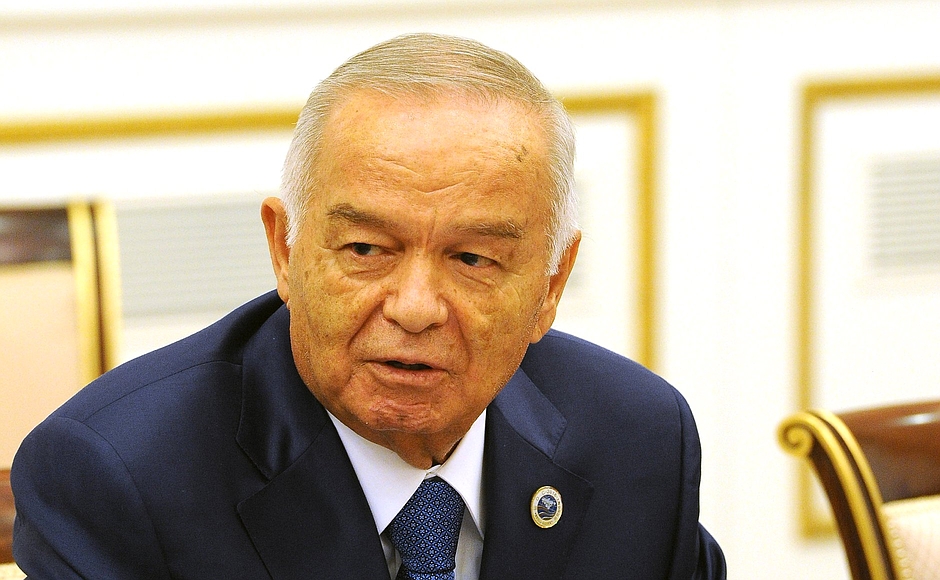Brittle Uzbekistan hopes for a controlled succession
Uzbekistan will most likely celebrate its September 1st independence day without long-serving President Islam Karimov, marking a potentially dramatic first for this strategic Central Asian country since it broke free of the former Soviet Union 25 years ago.
August 31, 2016 -
Deirdre Tynan
-
Articles and Commentary

The 78-year-old leader has ruled with iron fist since 1991, butsuffered a brain hemorrhageon August 27th. The Uzbek authorities have broken their taboo about discussing the president’s health, saying he has a serious problem that may take time to treat. After years of speculation and anticipation, Central Asia’s most populous state may now face a tense transition, a prospect that is deeply unnerving for its neighbours.
According to the constitution, if the president cannot fulfil his duties, the chair of the Senate acts as caretaker until an election. Nigmatilla Yuldashev, a former justice minister, was handpicked by Karimov for the post in January 2015. He is a loyalist and owes his position to the president’s patronage, but adhering to the constitution – relentlessly amended to consolidate Karimov’s position – has little precedent in Uzbekistan.
While Karimov is temporarily incapacitated, however, the prognosis remains unclear.According to his daughter Lola Karimova-Tillyaeva, his condition is stable.
What is likely when the time comes for a transition is that executive power would be exercised by Karimov’s inner circle, including Prime Minister Shavkat Mirziyoyev, Deputy Prime Minister and Finance Minister Rustam Azimov and the feared head of the National Security Service (NSS), Rustam Inoyatov.
All these players will want a smooth handover, with no dirty linen aired in public. If they manage to avoid in-fighting, they are expected to manage the stakeholders and patrons who make up an opaque system of governance and privilege. It is likely that a script has been in place for some time and that each member of the inner circle knows his or her role.
While this is not a democratic process, it may well minimise immediate instability; Uzbekistan’s neighbours – especially Kyrgyzstan and Tajikistan – would welcome that. Underlying security threats to the region, including fromthe spread of transnational threats like Islamic State, were underlined by the August 30th suicide bombing that injured three guards at the Chinese Embassy in Bishkek, Kyrgyzstan.
Neighbouring Turkmenistan may have set an example. Its late president, Saparmurat Niyazov, was a far more mercurial ruler than Karimov. Yet within two months of Niyazov’s death in 2006, Gurbanguly Berdymukhamedov was declared head of state with no obvious disturbance to the country’s despotism. A similarly stage-managed transition is unlikely to lead to a reform of Uzbekistan’s deeply authoritarian system, but chaotic change in a fragile region would widely be considered dangerous.
Uzbekistan is a clannish, ethnically diverse country with regions that were rival khanates for centuries and still have conflict potential. Karakalpakstan in the north west is a resource-rich, environmentally degraded, autonomous republic that has never been allowed to hold a referendum on its future. Karakalpak dissidents, most in exile, complain of a movement of ethnic Uzbeks into their region, prejudice against its culture and an ever-present network of police informants. Some felt invigorated by Russian actions in Crimea and have grown more vocal, hoping for similar support for their ambitions. They and other Uzbek politicians in exile, however, have more bark than bite.
The densely populated Ferghana Valley is haunted by the legacy of a 2005 government crackdown that left hundreds dead, mainly in the city of Andijan. Incomes across the country have declined in the past year, and mass arrests of alleged Islamic extremists have contributed to a sense of fear and distrust.
Karimov’s foreign policy has shifted repeatedly over the years, producing turbulent relations with Russia, the U.S. and the European Union. China seemingly treats Tashkent more cautiously than other Central Asian states. A United States’ airbase was closed after Washington criticised the 2005 violence. Uzbekistan has flip-flopped in and out of the Russian-led Collective Security Treaty Organisation and refused to join the Eurasian Economic Union, a Moscow-dominated trade group. Nevertheless, Russia has considerable leverage as host to some two million migrant Uzbek workers whose earnings are vital to Uzbekistan’s economy. Russian diplomats say privately there is little love for Karimov in Moscow.
Karimov’s daughter Lola is regularly touted as a potential successor, but professes disinterest in a high governmental post; his other daughter, Gulnara, is in disgrace from financial scandals. The most pressing concern of whomever from the circle around the president ultimately steps into the leadership role – even as caretaker – will be to maintain the status quo.
Stability that papers over the country’s potential to fracture is also the approach Uzbekistan’s near partners will likely approve of, at least in the short term. Their hope will be that the Tashkent clan honours its backroom deals in order to stave off what could otherwise become a violent crisis with regional implications.
Deirdre Tynan is the International Crisis Group’s Central Asia Project Director.
*This article was originally published at Crisis Group’s website.

































